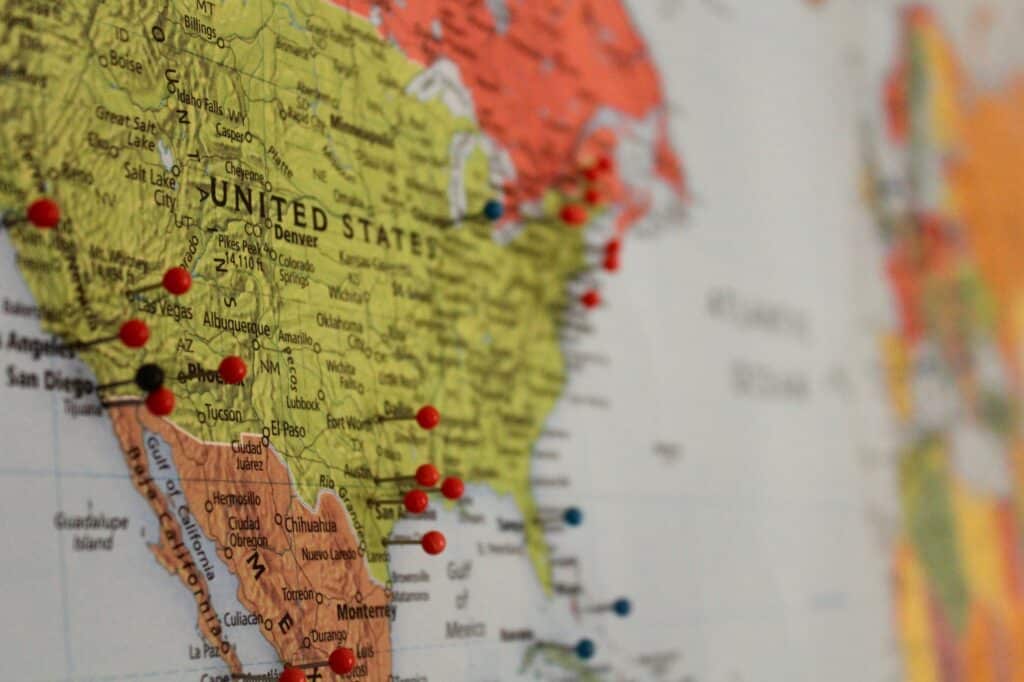You work hard, and you deserve a vacation. Travelling to the United States is a great way to take advantage of your time off, but if you have a Canadian criminal record, it’s only natural to wonder: Will I be able to enjoy my trip – let alone cross the border?
Some people might quit here, but you’re committed to having a nice time. Whether you want to visit relatives down south or finally fulfill that promise to take your kids to the Grand Canyon, you shouldn’t have to give up on your plans just because of your past. Here’s what to know:

Why Travelling to the US With a Criminal Record in Canada Can Be a Problem
First up, the tough news: If you have a criminal record in Canada, you may not be able to enter the United States. The United States has an official policy of rejecting entry to people with criminal records. Like most rules, however, this policy requires enforcement – and the law leaves a lot of wiggle room.
When a Canadian or other foreign national tries to enter the US, it’s the US Customs and Border Protection (CBP) agency that decides what comes next. The CBP is a part of the Department of Homeland Security (DHS), and you’ll usually interact with CBP agents the most. What’s confusing is the fact that the CBP has discretionary power based on perceived threats. In other words, an agent can choose whether to deny entry on a case-by-case basis, even when a would-be traveler already has a valid visa. There’s no universal rule here because each traveler’s situation is so unique.
Crimes That Make You Inadmissible to the US
Just as US law leaves room for CPB agent discretion, it’s written broadly when it comes to which crimes make potential visitors inadmissible. The two major classes of crimes that can instantly prevent your entry include drug crimes and crimes of so-called “moral turpitude.”
Drug crimes can include a range of offences – potentially including those where drugs were only incidentally involved. Moral turpitude crimes are those regarded as insults to morality, which admittedly covers a lot of ground. Some travel-stopping examples include sex crimes, assaults, murders, financial crimes, human trafficking, and a wide range of property crimes.
In other cases, you can be denied entry based on your criminal history but not the nature of specific crimes. For instance, if you were convicted of at least two crimes and sentenced to five or more years in prison, you can be denied.
Can I Enter the US if I Was Charged but Not Convicted?
This is one area where personal discretion pops up again: An individual agent can take actions based on their perceptions of the threat each traveler poses, so some charges might be enough to stop you from moving forward.
It’s usually a good idea to keep your RCMP criminal record with you to show the agent you weren’t convicted. Remember, however, that an arrest alone may be sufficient grounds for a discretionary denial.
Can I Enter the US if I Was Pardoned for My Crimes in Canada?
Unfortunately, the US does not recognize Canadian Pardons (now known as Record Suspensions). You will need to apply for a US Entry Waiver to cross the border.
An entry waiver is a formal acknowledgement from the DHS telling CBP agents that the US has decided to overlook your criminal record. There’s no guarantee that you’ll be granted one, but you can always make a request – even without a pardon.
Not sure if you qualify for a US Entry Waiver?
Start by checking your eligibility.
Making the Most of Your US Vacation With a Canadian Criminal Record
Your criminal record is a major factor in your eligibility to enter the US. What’s not always obvious is just how it will impact your journey. The nature of your criminal history, prior border crossings, and professional reasons for entering, such as being a temporary worker or spouse of a US citizen, all affect the hurdles you’ll face.
Crossing the border can seem like a trial filled with CBP agents who might make seemingly arbitrary or unfair choices, but it’s not a game of chance. Even with a less-than-stellar personal history, there are options for charting a path forward.
Whether you’re seeking a US entry waiver or still awaiting a Canadian pardon, getting informed early is the best option. Talking to an experienced pardon service agent might be the smartest move if you’re unsure or want to travel soon.
Contact us today for a free consultation at 1-866-972-7366